Shifting Narratives About Gender in Tanzania: Refining Roles for Men in Reproductive and Maternal Health
Abundant evidence supports applying a gender lens to improve outcomes and impact across health and development areas.1,2 It reveals how social roles, responsibilities, and practices are gendered, i.e., informed by, shaped by, or biased towards gender norms that govern people’s behavior across all sectors of society. As Breakthrough ACTION country implementation programs apply a gender lens to activity design and implementation, they further understand why they need to engage men and boys as individuals, as partners, and as family and community members.
In Tanzania, Breakthrough ACTION provides social and behavior change (SBC) technical support to service delivery partners working with private faith-based health care facilities, government-run health care facilities—which represent over 60% of health care facilities in the country3—and communities. In this role, Breakthrough ACTION Tanzania helps design and disseminate SBC materials. It also promotes uptake and use of SBC approaches for reproductive, maternal, newborn, and child health (RMNCH), among other health areas. The global SBC field has paid more attention to male engagement in newborn and child health, compared to reproductive and maternal health,4,5 and Tanzania is no exception. Through its robust partnership with the USAID-funded Community Partnerships for Respectful Care (CPRC) project (Box 1), Breakthrough ACTION Tanzania is helping shift the narrative around men’s roles in reproductive and maternal health.
|
To generate ideas on how to improve client–provider interactions and women’s health care-seeking under the CPRC project, Breakthrough ACTION Tanzania conducted a human-centered design (HCD) workshop with relevant partners and stakeholders, including Ministry of Health officials, health care providers, religious and faith leaders, community members (including pregnant women and their male partners). Together, they designed programmatic interventions that encourage clients to expect, seek, and demand the highest attainable quality of care, based on their right to dignified and respectful RMNCH care. At the end of the workshop, participants prioritized ideas according to the greatest potential for impact. The final priority ranking was (1) male engagement, (2) health markets, (3) reporting and accountability mechanisms, (4) Nzengo Afya (“Nzengo health”, “Nzengo” is a traditional form of community meeting), (5) client-provider communication, and (6) rights-based RMNCH education. Male engagement emerged as a top priority among all involved. Pregnant women, women with children, their husbands, and those serving as community leaders, agreed that engaging male partners was necessary to achieve the aims of the CPRC project. Some of the reasons women shared in support of increased male engagement included:
- Gendered roles uphold men’s dominance in household decision making and access to and control over assets and resources, including those related to health.
- Prevailing gendered norms, values, and beliefs support men’s lack of involvement in RMNCH health care-seeking. For example, many communities commonly believe men who take children to health care visits are less masculine and weaker than women.
- Men see little to no value in accompanying their female partners to health care visits because health care staff and providers will not welcome or acknowledge them or will tell them to leave.
- Some social and gender norms inhibit effective relationship communication around health care decision-making and health care-seeking in couples, families, and communities.
After identifying male engagement as a top priority in the workshop, Breakthrough ACTION Tanzania proposed the development of a discussion guide for men’s dialogues in communities. The Kijiwe Cha Wanaume (“men’s corner”) discussion guide uses interactive activities to address core topics such as understanding men’s roles in RMNCH; defining quality of care, experience of care, and respectful care; navigating client-provider interactions; advocating to receive the highest attainable quality of care; reporting instances of mistreatment in health care facilities; and providing feedback on experience of care for themselves, their partners, and their families. Now that the Ministry of Health has reviewed and approved the guide, the CPRC project is partnering with male champions to host men’s dialogues using the Kijiwe Cha Wanaume discussion guide in their communities.
This is just one example of how Breakthrough ACTION Tanzania is helping change perceptions around gender and refining roles for men in RMNCH, family planning (FP), and other health areas where women experience bias. In the coming year, Breakthrough ACTION Tanzania will continue to work with partners and stakeholders to identify opportunities to increase and improve male engagement in a supportive, affirming, and gender-equitable manner. This will equip local partners and stakeholders in Tanzania with the ability to not only improve RMNCH outcomes in the immediate future but also carry on similar work on their own in the long term.
To learn more about male engagement and how programs can engage men and boys in FP, RMNCH, and related health areas, consult Breakthrough ACTION’s collection of Know, Care, Do resources.
Resources
- Know, Care, Do: A Theory of Change for Engaging Men and Boys in Family Planning (English, French, Spanish)
- Case Studies: Know, Care, Do: Case Studies (English, French)
- Advancing Male Engagement in Family Planning and Reproductive Health: An Advocacy Tool (English, French)
Online Course
References
- Hay, K., McDougal, L., Percival, V., Henry, S., Klugman, J., Wurie, H., Raven, J., Shabalala, F., Fielding-Miller, R., Dey, A., Dehingia, N., Morgan, R., Atmavilas, Y., Saggurti, N., Yore, J., Blokhina, E., Huque, R., Barasa, E., Bhan, N., Kharel, C., … & Gender Equality, Norms, and Health Steering Committee. (2019). Disrupting gender norms in health systems: making the case for change. Lancet, 393(10190), 2535–2549. https://doi.org/10.1016/S0140-6736(19)30648-8
- Heise, L., Greene, M. E., Opper, N., Stavropoulou, M., Harper, C., Nascimento, M., Zewdie, D., & Gender Equality, Norms, and Health Steering Committee. (2019). Gender inequality and restrictive gender norms: Framing the challenges to health. Lancet, 393(10189), 2440–2454. https://doi.org/10.1016/S0140-6736(19)30652-X
- International Trade Administration [ITA]. (2022). Healthcare. Tanzania Country Commercial Guide. https://www.trade.gov/country-commercial-guides/tanzania-healthcare
- Greene, M. E. (2002). Involving men in reproductive health: Implications for reproductive health and rights. In Murphy, E., & Hendrix-Jenkins, A. (Eds.), Reproductive health and rights: Reaching the hardly reached (pp. 129–138). PATH.
- Greene, M. E., Berger, B. O., Hakobyan, L., Stiefvater, E., & Levtov, R. G. (2020). Getting to equal: Men, gender equality and sexual and reproductive health and rights. Promundo-US. https://promundoglobal.org/resources/getting-to-equalmen-gender-equality-and-sexual-and-reproductive-health-and-rights
- Chervenak, F. A., McLeod-Sordjan, R., Pollet, S. L., De Four Jones, M., Gordon, M. R., Combs, A., Bornstein, E., Lewis, D., Katz, A., Warman, A., & Grünebaum, A. (2023). Obstetric violence is a misnomer. American Journal of Obstetrics and Gynecology, S0002-9378(23)00732-9 [Advance online publication]. https://doi.org/10.1016/j.ajog.2023.10.003
Written by: Danette Wilkins, Program Officer, Breakthrough ACTION, and Shahada Kinyaga, Deputy Chief of Party, Breakthrough ACTION Tanzania

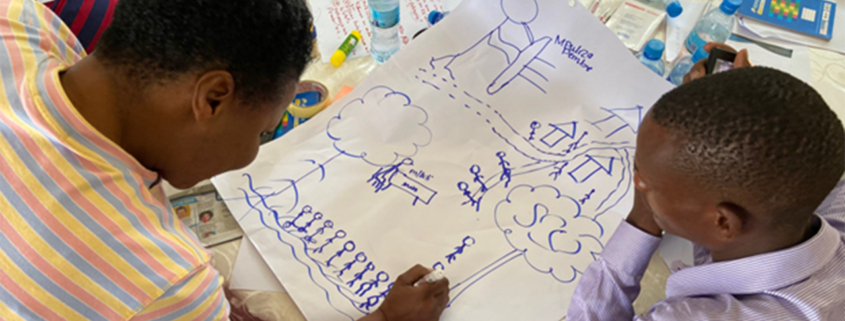 Breakthrough ACTION Tanzania
Breakthrough ACTION Tanzania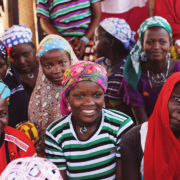 Cambey Mikush/Photoshare
Cambey Mikush/Photoshare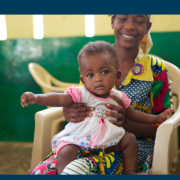 Sara Holbak/VectorWorks/Photoshare
Sara Holbak/VectorWorks/Photoshare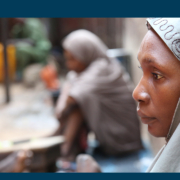
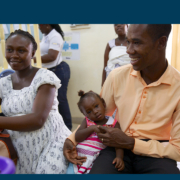 Sarah Hoibak/VectorWorks/Photoshare
Sarah Hoibak/VectorWorks/Photoshare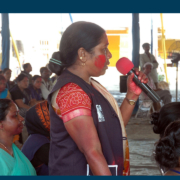 Gopal Bhattacharjee/Photoshare
Gopal Bhattacharjee/Photoshare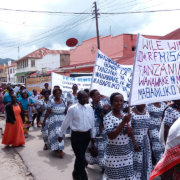 Rebekah Munnikhuysen/US Peace Corps/Photoshare
Rebekah Munnikhuysen/US Peace Corps/Photoshare